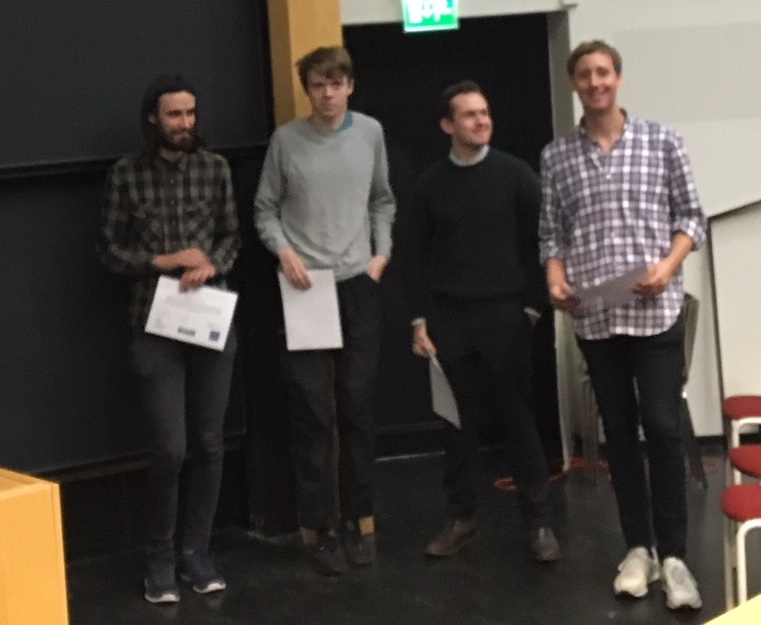Stockholm Mathematics Centre Prizes for Excellent Doctoral Dissertation and Master Theses 2017/2018

Excellent Master Theses
Nils Gustafsson
Box Polynomials of Lattice Simplices
Nils Gustafsson's thesis is concerned with properties of polynomials associated with convex polytopes, in particular the so-called h*and box polynomials. The study of such polynomials is a central topic in modern combinatorics. Gustafsson uses methods from combinatorics and topology to prove that the h*-polynomials associated with a large class of polytopes have a certain desirable property, called unimodality. His result represents a substantial contribution to the subject and partially solves an established open problem. The thesis is well written and shows technical mastery and creativity.
Mårten Wiman
Improved inapproximability of Max-Cut through Min-Cut
Mårten Wiman receives the prize for his impressive work on the Max-Cut approximation problem, which is among the most widely studied NP-hard problems. In his thesis Wiman improved the best known bound for the inapproximability factor for the Max-Cut problem. The ideas used by Wiman open possibilities for further improvement on the inapproximability result. Wiman’s outstanding master thesis shows a deep understanding and an exceptional maturity.
Ingvar Ziemann
Model Reduction of Semistable Infinite-Dimensional Control Systems
In his thesis, Ziemann builds on recent advances in model reduction for finite-dimensional stable control systems to find extensions to the infinite-dimensional and semistable settings. In doing this, Ziemann demonstrates considerable originality and an impressive command of functional-analytic and control-theoretic concepts and methods. His thesis is very clearly written and illustrates the results obtained using well-chosen examples.
Excellent Doctoral Theses
Gleb Nenashev
Around Power Ideals
Gleb Nenashev has in his thesis demonstrated remarkable breadth and inventiveness and he combines tools from different areas of mathematics.
Aron Wennman
Random and optimal configurations in complex function theory
Aron Wennman shows in his thesis a great depth within several different areas of analysis, in work of his own and in collaborations with other mathematicians.
